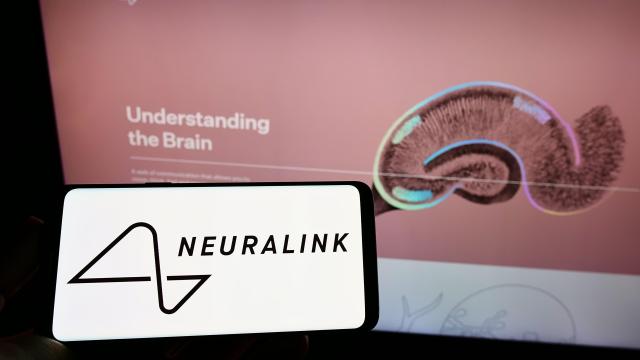Elon Musk’s brain implant company Neuralink has been in more trouble with the federal government than previously known. A Reuters report published last week says that the U.S. Department of Transportation recently fined Neuralink for violating rules governing the movement of hazardous materials. The DOT has since settled the matter, however.
The violation was reportedly unearthed via a public records request of the DOT from the advocacy group Physicians Committee of Responsible Medicine (PCRM), with the documents later being shared with and viewed by Reuters. The PCRM has been a persistent critic of Neuralink over how the company is attempting to create implantable brain-computer interfaces.
The group was the first to release records documenting gruesome-sounding experiments with lab monkeys carried out by Neuralink in collaboration with the University of California Davis. The reveal of these experiments, which allegedly led to some implanted monkeys vomiting and mutilating themselves, resulted in an investigation of the company by the U.S. Department of Agriculture’s Office of the Inspector General, which appears to be still ongoing.
Last February, the PCRM publicised a new batch of records, which it claimed showed that the company had illegally transported hazardous materials, including brain implants potentially contaminated with dangerous primate pathogens. Following this release, the DOT opened its own investigation, which included visits to Neuralink’s facilities in California and Texas.
According to Reuters, the DOT found that Neuralink failed to appropriately register itself as a transporter of hazardous material. The agency also determined that company workers improperly packaged certain hazardous waste materials, specifically the chemical xylene, a colourless flammable liquid that can cause eye and skin irritation or even neurological symptoms in people with heavy exposure. However, the available records do not disclose whether any bodily harm came from these violations or why the company needed to transport the materials in the first place; they also failed to find evidence that the company shipped materials that carried anything infectious.
Ultimately, the DOT only fined Neuralink a total of $US2,480 for the violations, an amount that was lowered from the original expected fine after the company pledged to fix its practices, Reuters reported. A spokesperson with the DOT’s Pipeline and Hazardous Materials Safety Administration also confirmed with the media outlet that the agency’s investigation is now over.
“Neuralink’s violations once again reveal the company’s sloppy, unsafe practices,” Ryan Merkley, PCRM’s director of research advocacy, told Reuters.
Neuralink has struggled to live up to Elon Musk’s grandiose statements about the potential of its technology, with Musk claiming that the implants could someday do everything from helping paraplegic people walk to allowing users to see alternate realities. And as recently as this past November, lawmakers have petitioned the SEC to investigate Musk for fraud over his attempts to deny any monkey deaths related to Neuralink’s earlier experiments.
But as this latest reveal shows, Neuralink has managed to dodge major trouble so far. And last May, it finally obtained FDA clearance for the first human trial of its implant, which is purportedly set to begin this year.
